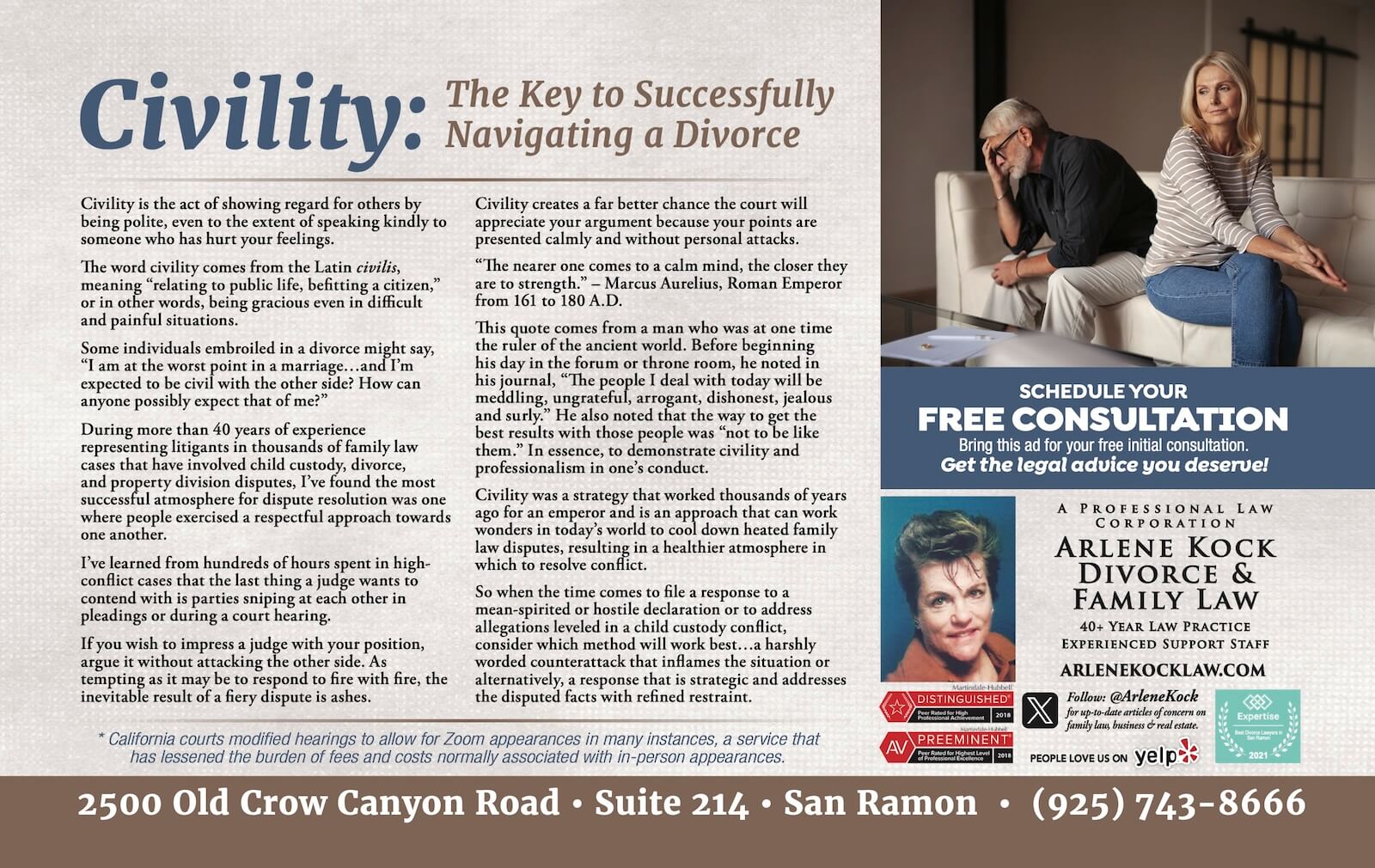Civility is the act of showing regard for others by being polite, even to the extent of speaking kindly to someone who has hurt your feelings.
The word civility comes from the Latin civilis, meaning “relating to public life, befitting a citizen,” or in other words, being gracious even in difficult and painful situations.
Some individuals embroiled in a divorce might say, “I am at the worst point in a marriage…and I’m expected to be civil with the other side? How can anyone possibly expect that of me?”
During more than 40 years of experience representing litigants in thousands of family law cases that have involved child custody, divorce, and property division disputes, I’ve found the most successful atmosphere for dispute resolution was one where people exercised a respectful approach towards one another.
I’ve learned from hundreds of hours spent in high- conflict cases that the last thing a judge wants to contend with is parties sniping at each other in pleadings or during a court hearing.
If you wish to impress a judge with your position, argue it without attacking the other side. As tempting as it may be to respond to fire with fire, the inevitable result of a fiery dispute is ashes.
Civility creates a far better chance the court will appreciate your argument because your points are presented calmly and without personal attacks.
“The nearer one comes to a calm mind, the closer they are to strength.”
– Marcus Aurelius, Roman Emperor from 161 to 180 A.D.
This quote comes from a man who was at one time the ruler of the ancient world. Before beginning his day in the forum or throne room, he noted in his journal, “The people I deal with today will be meddling, ungrateful, arrogant, dishonest, jealous and surly.” He also noted that the way to get the best results with those people was “not to be like them.” In essence, to demonstrate civility and professionalism in one’s conduct.
Civility was a strategy that worked thousands of years ago for an emperor and is an approach that can work wonders in today’s world to cool down heated family law disputes, resulting in a healthier atmosphere in which to resolve conflict.
So when the time comes to file a response to a mean-spirited or hostile declaration or to address allegations leveled in a child custody conflict, consider which method will work best…a harshly worded counterattack that inflames the situation or alternatively, a response that is strategic and addresses the disputed facts with refined restraint.


